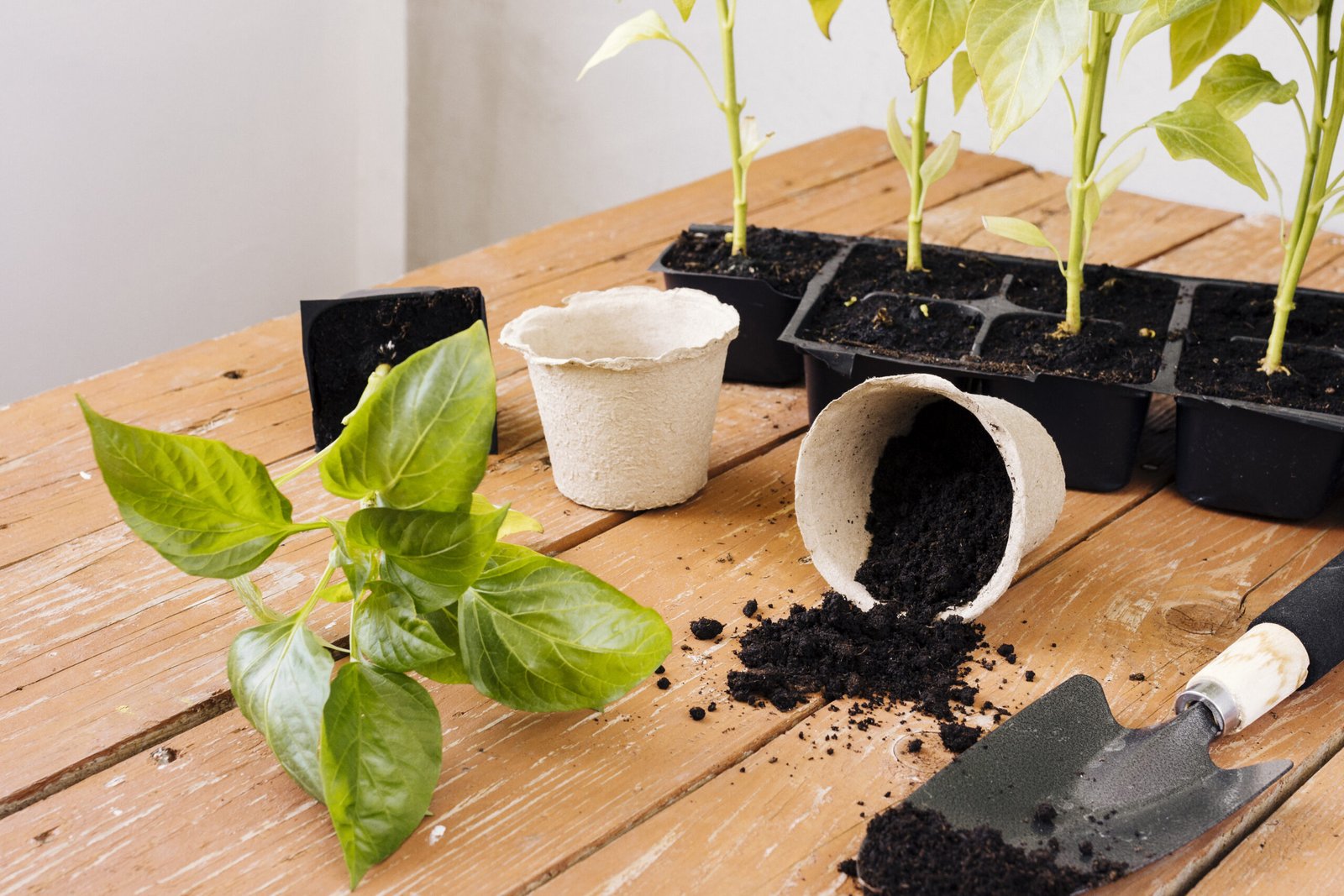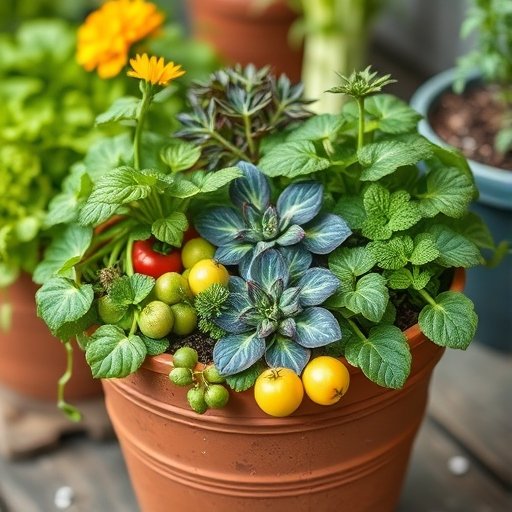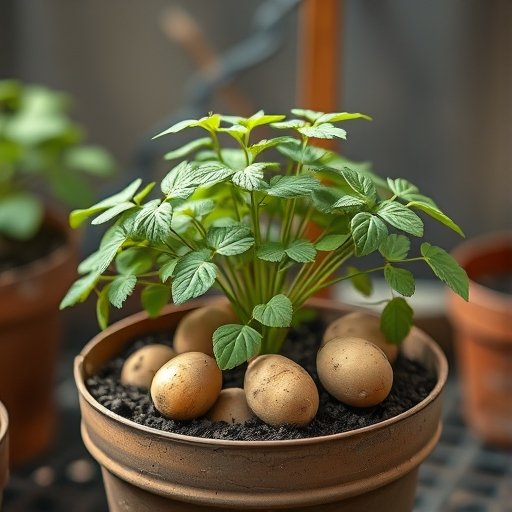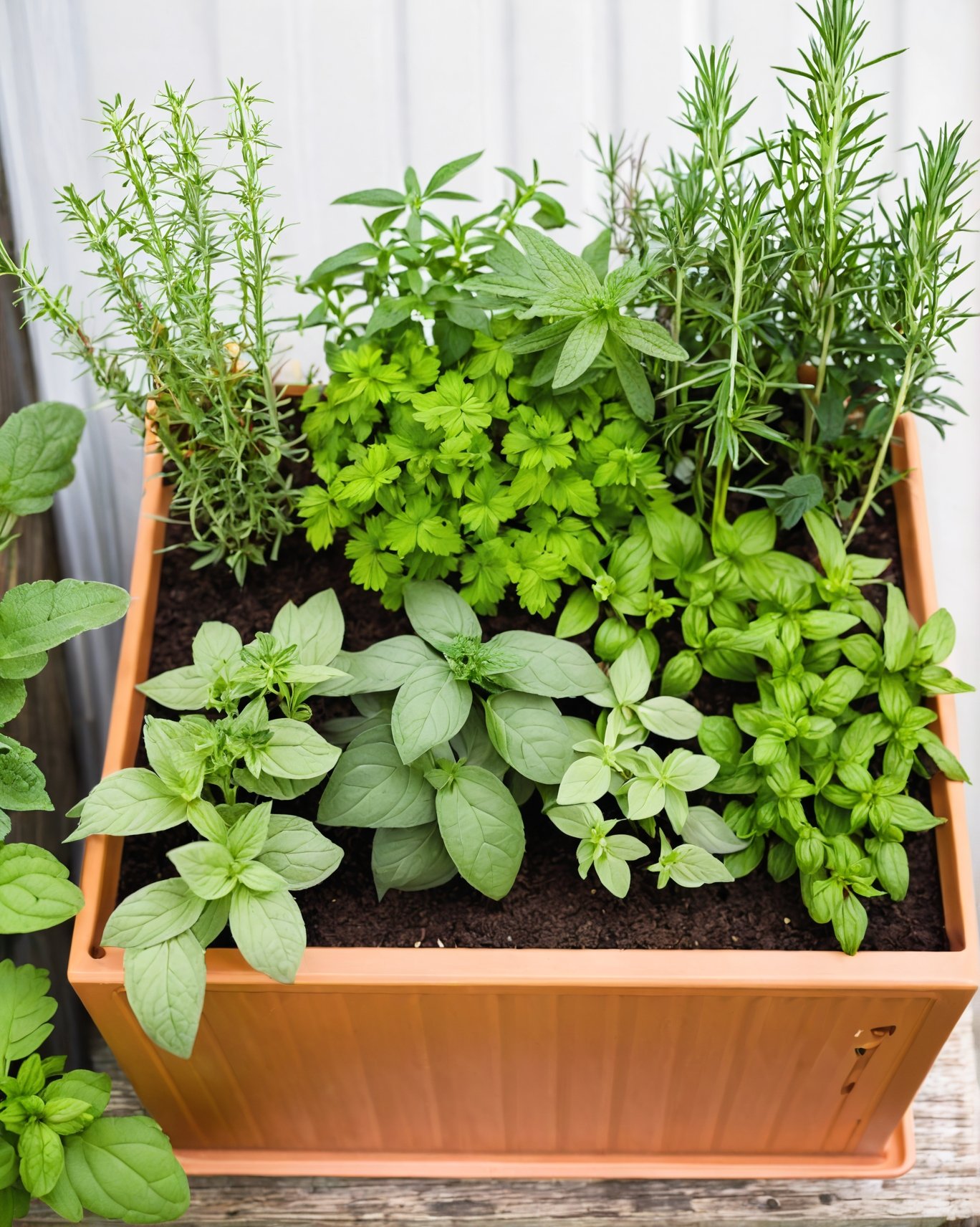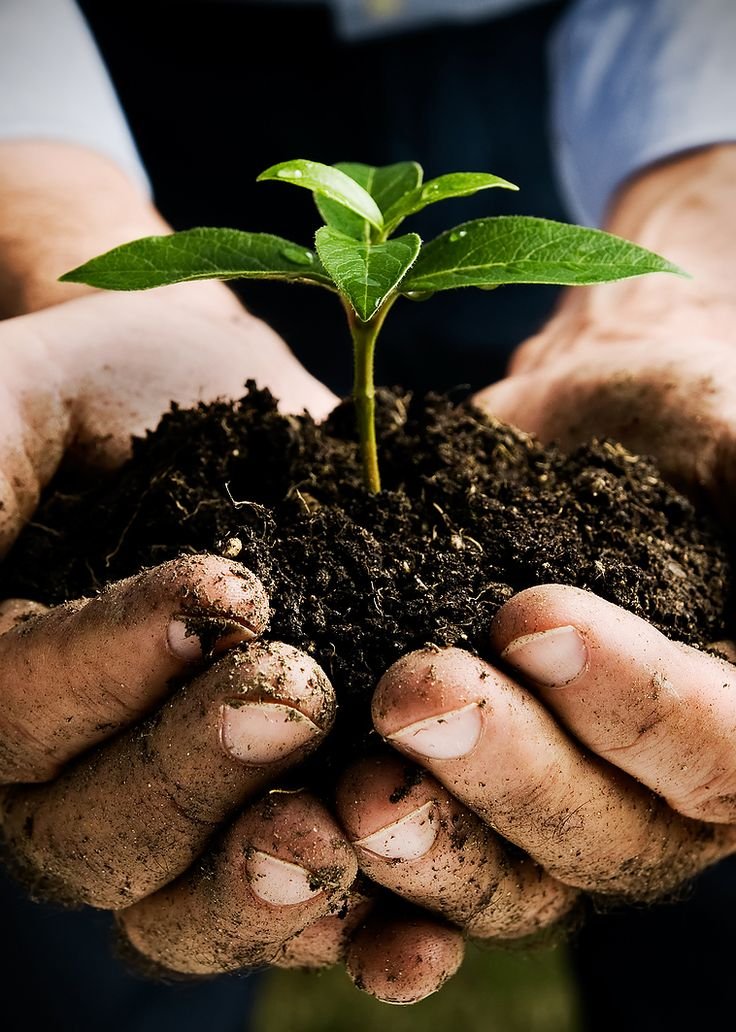Planning on creating, you know, your own container garden but bewildered by what kind of soil to use? Here’s your lucky day, then. In this article, we’re going to plunge in and figure out the finest soil alternatives for container gardening. Possessing the suitable soil is of utmost importance for the wellbeing of your plants, because it comes with vital nourishment and efficient drainage! Whether vegetables, herbs or flowers you’re nurturing in containers; the variation of the soil you use can result in enormous changes in their growth and overall health.
Benefits of Container Gardening
Container gardening presents quite a few profits for everyone whether they are seasoned gardeners, or beginners. One major benefit is having the facility to keep a garden even if space is limited. Container gardens can be initiated on balconies, patios or even windowsills; letting you appreciate the charm and productivity of plants even in a limited space, too. What’s more? Container gardening offers better control over soil quality, watering, and pest management. These factors lead healthier and increased productivity in plants.
Container gardens even usher in more versatility and transportability. Even if you live in an area occupied with harsh weather conditions or limited access to sunlight, you can effortlessly! move your containers to a location which is more beneficial. This adaptability ensures that the plants are given optimal sunlight and are protected against harsh weather conditions.
Importance of Understanding Soil Usage in Container Gardening
Soil plays a major role, very important in the success of your plants in the case of container gardening. Rather than traditional garden, container garden is limited in its access to natural soil and heavily rely on the soil inside the containers. The soil acts as the main supply of nutrients and helps in water retention! and aeration for your plants. Therefore understanding the key factors to decide the soil for container gardening is of high importance.
Considerations to Make for Choosing Soil in Container Gardening
- Water Retention – Container soil must have good water retention capabilities, ensuring your plants receive ample moisture without becoming waterlogged. Compost or peat moss included soil mixes as they aid in retaining moisture might be a good look.
- Proper Aeration – This is a key factor in container gardening as it allows roots to have access to oxygen and keeps them from becoming waterlogged. Draining soil mixes containing perlite or vermiculite to improve aeration can be the right pick for you.
- Nutrient Rich – The nutrients available in the soil, relied heavily on by the container plants, as they cannot draw nutrients from the surrounding ground. Hence, soil mixes that are organic in matter and supplemented with slow-release fertilizers are the ideal
Soil types for Container Gardening
- Potting Mix – This popular choice for container gardening is because of its supreme water retention and drainage attributes. Generally composed of peat moss, perlite and vermiculite, provides good aeration and moisture control. Potting mix is ready available at garden centers can be used for a wide range of plants.
- Garden Soil – This soil can also be a viable option, should you possess surplus soil from your outdoor garden. However, garden soil may become condensed and lack proper drainage especially when used for containers. Add equal part compost or peat moss to the garden soil to upgrade its moisture retention and aeration.
- Cactus or Succulent Mix – Your plan is to grow cacti or succulents, you must get a specialized cactus or succulent mix. These plants need a soil mix which drains well to prevent root rot. A cactus or succulent mix will majorly be composed of coarse sand, perlite, and a little organic matter.
Organic Choices for Soil in Container Gardening
If organic methods are your preference, several organic soil options are available for container gardening:
- Organic Potting Mix – Retailing potting mixes have natural ingredients; like compost, peat moss, and coconut coir. This makes them a healthier option for you and for the environment as they are free from synthetic fertilizers and pesticides, Good water retention and aeration properties make them good choice for a wide range of plants for containers.
- Homemade Compost Mix – Compost mix made by you could be an efficient cost saver option for organic container gardening. It’s rich in nutrients and organic matter that improves soil fertility and structure. A equal combination of compost, peat moss, and vermiculite or perlite will create an optimal soil.
- Worm Castings – Also known as vermicompost worm castings are nutrient-rich soil amendments produced by earthworms. They have beneficial microorganisms to help break down organic matter. Adding worm castings to your soil will improve its nutrient content.
Improvement of Soil Quality in Containers
In some cases the soil you put together or bought may need some improvement to be perfect for the container plants. A few tips on how to do that:
- Organic Matter Addition – Soil can have improved texture, water supply and other nutrient supply by adding, such as compost, to your container soil. During planting mix in a fair amount of compost or dress the top of the containers with compost throughout the growing season.
- Mulching – Applied as a layer of mulch, like shredded leaves or straw, on top of container soil helps conserve moisture, control temperature, and suppress weed growth. Over time, mulching even adds organic matter to the soil as it decomposes.
- Regular Fertilizing – Fertilizing of Container plants is required more frequently than that of plants in the ground. A equal slow-release fertilizer or organic liquid fertilizer can offer your plants a steady supply of nutrition during their growing season.
Healthy Soil Maintenance Tips for Container Gardening
Here are tips for maintaining healthy soil to ensure long-term health and productivity of your container garden:
- Moisture Level Monitoring – Container soil can dry out rather fast, especially in hot weather. Regular checks on moisture levels and the containers should be watered as required. Overwatering should be prevented as it may lead to root rot and other plant issues.
- Compaction Avoidance – Over time, a container soil may become clogged leading to blocked aeration and restricted root growth. The surface of soil can be loosely agitated with a small cultivator or fork to improve aeration and prevent compaction.
- Plant Rotation – Nutrient drain and disease accumulation can be prevented by rotating plants each year. Yearly rotation in the plants ensures fertility of the soil and minimizes risk of the same plant species getting affected by pests and diseases year by year deliciously.
Avoidable Mistakes when Choosing Soil for Container Garden
- Using Garden soil Alone – As previously mentioned, using only garden soil for container gardening may definitely not be the top choice. The soil can become compacted, lack proper drainage and contain weed seeds and pathogens. Always include compost or peat moss to garden soil before it is utilized in containers.
- Drainage Ignorance – Proper drainage is of utmost importance for container plants to not let roots become waterlogged. Overly moist soils suffocate the roots leading to root rot. Ensure the container has draining holes and only use soil mixes.
- Neglecting Nutrient Supply – Container plants depend on the nutrients present in their soil as they have no access to the surrounding ground nutrients. Always utilize soil mixes that are nutrient enriched or add organic fertilizers ensuring the plant gets its required nutrients.
Conclusive Thoughts
Choosing the apt soil for the plants in your container garden is a pivotal point for their health and success. Considerations such as water retention, aeration, and nutrient content are needed when selecting soil. Potting mix, garden soil and unique mixes like cactus / succulent mix are the most used for container gardening. Organic options including homemade compost mixes, organic potting mixes, and worm castings can be used if you prefer organic gardening techniques. Check moisture levels on a regular basis, avoid compaction, and ensure nutrients are supplied to maintain healthy soil in your containers! By adhering to the guide and refraining from common mistakes, your journey to a thriving container garden bursting with healthy beautiful plants is ahead. Happy gardening.
